A Critical Look at Climate Change: Koonin's Insights and Beyond
Written on
Chapter 1: Examining Koonin's Perspective on Climate Change
Finally, we have a climate change critique that provides a credible counter to the widely accepted alarmism, grounded in data, replicable critiques, and strong scientific principles. Steven Koonin, who served as Undersecretary for Science in the Energy Department during the Obama era and has a 15-year background in climate science with affiliations to major oil companies and scientific bodies, presents his views in his book Unsettled. This work encapsulates his reflections from that time, along with numerous challenges he poses to the prevailing narrative of climate panic.
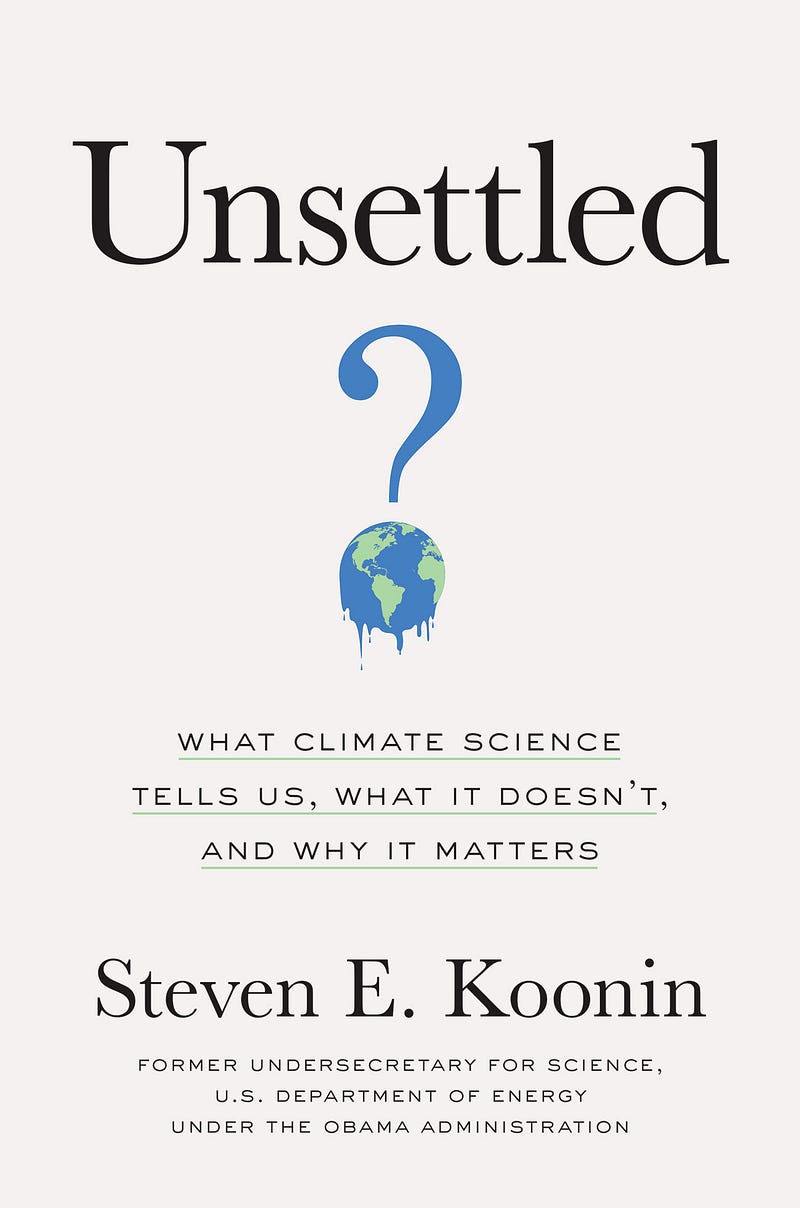
Koonin's critiques can be categorized into two main areas: while there is undeniable evidence of human-induced pollution, he argues that there is no direct proof linking this pollution to climate change. Furthermore, he contends that scientific claims often contradict the evidence they are based on, revealing a troubling trend where science is utilized to persuade rather than educate.
In light of these issues, Koonin scrutinizes various aspects of climate change, including hurricanes, sea-level rise, and carbon dioxide levels. In each instance, he finds that scientific representations have been distorted, with humanity's role exaggerated or, in some cases, unproven.
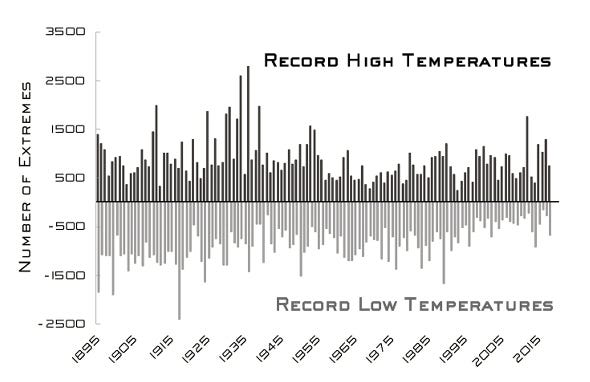
His concern regarding human accountability hinges on the age-old adage that correlation does not equal causation. It is virtually impossible, he asserts, to attribute any measurable climate changes observed today to human activity, especially when carbon dioxide levels have recently surpassed the 400 ppm threshold established millions of years ago, without substantial evidence of climate upheaval.
Moreover, the data does not indicate an increase in the number or severity of hurricanes or tornadoes. Notably, even the UN-IPCC reports, often cited to demonstrate the detrimental impacts of climate change, suggest that if global temperatures rise by 3°C instead of the targeted 1.5°C, the economic repercussions will be minimal—not catastrophic as frequently portrayed by the media.
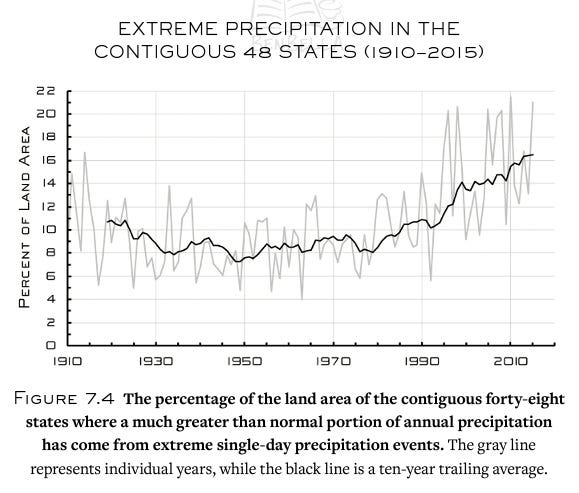
Koonin succinctly articulates his frustration: "Understanding how the climate system reacts to human influences is unfortunately akin to deciphering the link between human nutrition and weight loss, a topic that remains unsettled." His command of the data and scientific concepts is strong, yet it may require readers to trust his analyses, especially when he references complex metrics like the Power Dissipation Index (PDI) used in hurricane research.
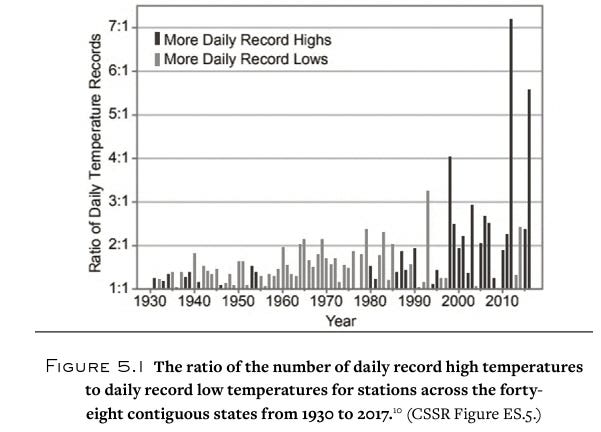
Koonin criticizes the media for citing hurricanes as proof of human-induced climate change, labeling such claims as at best unconvincing and at worst outright deceptive. He directs similar critiques at politicians and scientific publishers who overlook their own findings to create sensational headlines. He advocates for a more rigorous peer review process that emphasizes replicating results, though he notes that no one in authority seems willing to adopt this approach.
Chapter 2: Analyzing Sea-Level Rise and Tornado Trends
Koonin's analysis of sea-level rise, for instance, references historical data showing a gradual rise over the past 150 years. While he downplays the threat posed by this trend, other literature suggests that significant impacts from sea-level rise may become evident only after 2100, meaning past data may not accurately predict future outcomes.
The first video titled "BECC Webinar: Theories of Change for Encouraging Climate-Friendly Behaviors" discusses strategies for fostering sustainable practices in response to climate change.
Koonin acknowledges that while tornadoes may not be occurring more frequently or with greater intensity, they could affect larger areas as climate dynamics evolve, expanding the zones at risk. Although his data reflects only minor changes, there is a noticeable disconnect between his statistics and the reality observed by many, as governments increasingly purchase properties in flood-prone areas and adapt infrastructure to rising ocean levels.
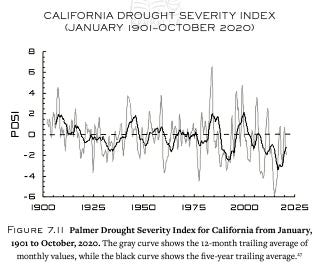
In the northeastern United States, for example, residents have witnessed a gradual shortening of winter, with peak fall foliage now arriving around Halloween rather than Columbus Day. The shifting of seasons, alongside the migration of southern insects, underscores the tangible effects of climate change, which Koonin seems to overlook.
Koonin may argue that the consequences of these changes are not yet fully understood; however, the urgency to address them remains clear. This brings us to the topic of geoengineering, where Koonin evaluates various proposals aimed at modifying the environment to counteract climate effects.
The second video, "Finance and Climate Change Part 1," explores financial theories and investment strategies designed to mitigate climate change impacts, emphasizing the role of funding in climate action.
Koonin expresses concerns about the feasibility of achieving international consensus on geoengineering initiatives, especially given the potential for wealthy individuals to unilaterally enact changes without global agreement. He warns that any cessation of such efforts could lead to rapid and severe consequences, likening it to abruptly closing an umbrella in the rain.
In a striking revelation, Koonin highlights that for the first time in 4.5 billion years, human-generated waste poses a threat to the planet's ecosystem. From plastics and carbon emissions to pesticides and nuclear waste, our impact is evident, yet Koonin's focus on historical data seems disconnected from the pressing issues at hand.
Koonin also minimizes the role of climate change in mortality rates, drawing parallels to the argument that guns do not kill people—bullets do. However, extreme weather events, such as the severe heatwave in France in 2003 that claimed 15,000 lives, illustrate the deadly consequences of climate change. The increasing frequency and intensity of heatwaves necessitate new adaptations, such as the widespread adoption of air conditioning.
In conclusion, while Koonin's analysis sheds light on various scientific and media biases, it ultimately leaves several questions unanswered. Although his arguments are well-founded and articulate, they fail to alleviate concerns about human impact on the climate and the unpredictable consequences that lie ahead. The science may be unsettled, but the damage inflicted is undeniable.
David Wineberg
(Unsettled, Steven Koonin, April 2021)